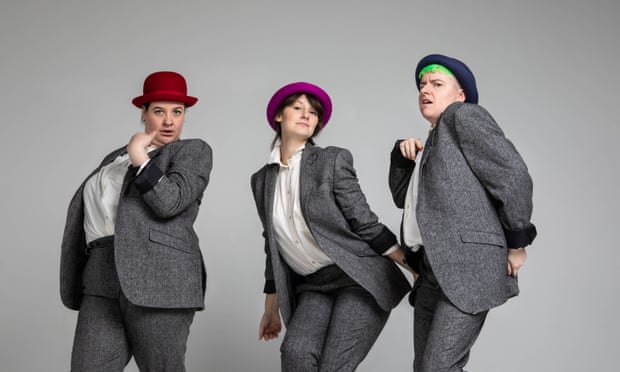Community, Leadership, Experimentation, Diversity, & Education
Pittsburgh Arts, Regional Theatre, New Work, Producing, Copyright, Labor Unions,
New Products, Coping Skills, J-O-Bs...
Theatre industry news, University & School of Drama Announcements, plus occasional course support for
Carnegie Mellon School of Drama Faculty, Staff, Students, and Alumni.
CMU School of Drama
Monday, October 19, 2020
Not waiting for Godot: new show tackles Beckett's ban on women
Samuel Beckett | The Guardian: A dead man’s voice can travel a long way. In 1988, Samuel Beckett sued a Dutch theatre company for casting women in his existential drama Waiting for Godot. When Beckett died a year later, responsibility for his estate was passed down to his nephew Edward, who has since continued to throttle any production that sways from his uncle’s precise instructions.
Subscribe to:
Post Comments (Atom)

4 comments:
I think this article really brings up some important questions about producing theatre today. And one of the questions it mentions is who owns theatre. And while a part of me does think that if someone writes a play and they make explicit rules about who can be cast and who can’t those rules need to be followed (like casting notes saying disabled characters need to be played by disabled actors, etc), but if those rules are sexist, as they are in this case or problematic in any other way, don’t do that play and stop giving support and money to that playwright. But in the case of this show, society has decided that Beckett is considered excellent theatre, and not giving anyone besides men the chance to partake in that is incredibly exclusionary. And as this article points out the characters are supposed to embody anyone and that is really telling that this playwright does not think women or nonbinary people can be representative of everyone but men can be. I guess my thoughts are if this estate and playwright are going to be so rigid on this outdated and sexist rule, people should just stop doing this show. There are so many excellent shows that allow for casting of people who aren’t men. And there are many plays written by women and nonbinary playwrights who need more exposure and support. So we should be doing those shows.
In high school I was cast in a Beckett play called Endgame and a few weeks after I was cast the director told me that years ago Beckett had set forth this rule that only men were to be cast in the majority of his plays. The freshmen in high school version of myself was absolutely devastated to hear this and felt that me being in the show was wrong and disrespectful to him. Luckily I had an amazing director that told me that “rules were meant to be broken” and that anything goes when it comes to theatre. Its so funny to me that Beckett’s demands had affected me so much when I was younger, and if I were to hear that rule today for the first time I would have just laughed. For someone who was extremely innovative and dramatic with his writings, Beckett surely had a narrow and really closed-minded view of the possibilities that so many different kinds of people can bring to his roles. I’d like to think that Beckett would have renounced his rule if he saw the direction that theatre has gone today, but who knows.
This is a super interesting article and tackles some really fascinating ideas that I haven’t had the chance to think too much about. After a writer dies, and the estate is the decision maker in productions of their work, the ownership of the show seems a little fuzzy, especially here. I find the rule of no women to be absolutely ridiculous, but I can see how people might want to uphold the decisions and wishes of an artist after their death. I love the idea of a show that counters this idea, “Gadot is a Woman” countering the gender rules in Beckett’s work. I want to do some more reading on this show & Beckett’s history and estate to understand more on this specific issue. I really recommend this article to anyone interested in gender restrictions in theater!
There appear to be three different debates that this article prompts. The first at the most surface level is a question of what authority should a playwright, or the playwright’s estate after their death, have over productions of their work. With theater there is always this ephemerality to a production because no performance will ever be the same and this quality pushes artists and theater makers to go back to old works and see if new things can be said if a location is changed or if a male character is now a woman. Assuming we grant some authority to an estate to preserve the intention of the work, then a second debate arises over where is that line. Gender, and how society thinks of it has evolved so much in recent history, that many actors are posing the question of what does it mean to have a character be a specific gender and is it truly a critical component of the story or are the playwright’s understandings of gender simply no longer relevant in today’s society. Lastly, there is a question of why do keep doing the same few plays by a bunch of dead white men. If we could expand the canon to be more diverse, then we could move past constantly wanting to do Waiting for Godot in the first place.
Post a Comment